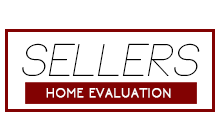Renting vs Owning, what’s best for your wallet?
This question can be answered in various ways depending on who you ask and when. The truth of the matter is that there’s no right answer – it all depends on the individual’s financial situation, how they think interest rates will move over time, and what their future plans are after they purchase or rent their property.
This guide will help you determine whether renting or owning makes more sense in this high-interest rate environment and how to stay on top of the ever-changing real estate market.
Does Home Ownership Save You Money?
Homeownership is not all rainbows and butterflies all the time, but it has some great benefits, including the potential to save money during periods of high inflation.
While the cost of living typically rises during inflationary periods, the value of real estate generally increases at a faster rate. As a result, homeowners often see their equity grow significantly over time.
In addition, fixed-rate mortgages provide home buyers with protection against rising interest rates. As inflation drives up the cost of borrowing, those with adjustable-rate mortgages may find their monthly payments becoming increasingly unaffordable. By contrast, those with fixed-rate mortgages continue to benefit from lower monthly payments, even as inflation eats away at the purchasing power of their incomes.
For these reasons, investing in a home can be a smart way to preserve wealth during periods of high inflation, but there are also potential drawbacks.
When inflation is high, so are home prices. And while this may seem like good news at first, it can actually have some very negative consequences. For one thing, high inflation means that the cost of living is also rising, making it difficult to afford the costs of homeownership and upgrades for some.
In addition, high inflation can lead to a higher rate of property taxes and home maintenance bills. In a high inflation environment, there is always the risk that the currency’s value will decrease, leading to a loss in the value of assets.
For all these reasons, homeowners and investors must be aware of the potential downside of investing in real estate during periods of high inflation.
When to Consider Owning vs. Renting During High Inflation?
Inflation is one of the most important drivers of long-term real estate returns. But it’s also one of the most difficult economic concepts to wrap your head around. So, when is it a good time for renting and owning?
As a general rule, inflationary periods are good for homeowners and bad for renters. That’s because, as prices rise, incomes usually grow at about the same rate. But rent increases can outpace income growth, making it difficult for tenants to keep up with inflation.
Owning real estate also allows you to benefit from rising prices through appreciation. As property values increase, so does your equity stake in the property. And if you eventually sell the property, you’ll be able to pocket the difference between the sale price and your original purchase price.
Of course, there are caveats to this general rule. For instance, if interest rates rise along with inflation, that could make loans more expensive and put downward pressure on property values. So, it’s important to stay up-to-date on economic trends and consult a local real estate agent or financial advisor before making any real estate buying or selling decisions.
Bottom Line – Buy or Rent?
If you can afford to buy your own place, the benefits are worth the cost of renting. If you have good credit or have built up equity, it might be a good time to purchase a property, especially if the home values have gone down recently. Real estate can be a tricky business. If you’re feeling lost or unsure about what to do next, please give us a call at (519) 800-7600. We would be more than happy to help you with the buying or selling of your property.









